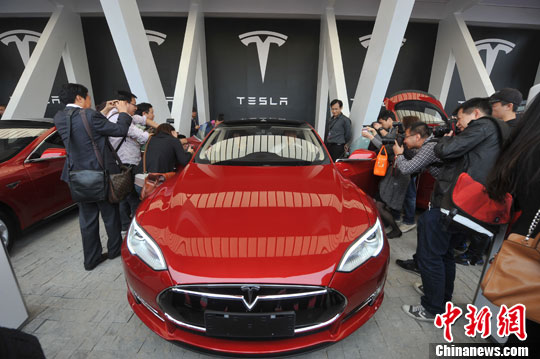


Elon Musk last Wednesday at the company's second-quarter earnings call revealed plans to set up a Tesla Gigafactory in China.
“We expect to keep most of our production in the U.S., but it's obviously going to make sense to establish Gigafactories in China and Europe to serve the markets there,” Musk said during the call.
“We really want to make our cars as affordable as possible. And so that does require some amount of local market production, particularly for mass market vehicles in order to make them as accessible as possible,” Musk further noted.
Tesla will be able to avoid significant import duties for Chinese customers. Musk claims that the company wants to keep its cars “as affordable as possible,” the International Business Times said.
Though battery management expert Tesla is currently leading both market and technology in the U.S., the company failed to make a real hit in the Chinese market. Its low production capability and high prices are not able to meet substantial market demand.
Given the drop in Tesla’s stocks and the launch of its new vehicle, Model 3, China is likely to be a giant tree that shelters the brand just like it was for other car makers, including Volkswagen, since the country’s market is developing fast and features inclusiveness as well as prospects.
Establishing a factory in China suggests not only the domestic market, but also worldwide sales for Tesla. However, whether Tesla’s new plan will work out in China still needs further thought.
Because a number of new energy enterprises are also emerging in China, racing fast for superior resources for their future market.
The considerable progress made by Chinese new energy car makers such as BYD and Denza has enabled them to challenge the U.S. electric vehicle giant. For instance, many domestic brands have developed new energy cars that could cover more than 300 kilometers, and some of them have expanded the range to above 400.
In addition, products by Chinese electric car makers are cheaper and more efficient because they match the country’s policies. Compared to Model S whose price is set at more than 1 million RMB ($148,865), domestic electric vehicles normally cost less than 200,000 RMB after grant of national subsidies. It seems that Tesla models have lost their competitiveness in this regard.
China became the world’s largest market for new energy vehicles in the last two years, and demand will continue to grow. BYD has surpassed Tesla, becoming the biggest new energy vehicle manufacturer. And withdrawal from the Paris climate pact will also burden the U.S. new energy market.
The public looks forward to Tesla’s market presence, but Chinese vehicle industry is also making fast progress to meet new opportunities. It is for certain that more and more Chinese car brands will shine in the international arena.
 Fire brigade in Shanghai holds group wedding
Fire brigade in Shanghai holds group wedding Tourists enjoy ice sculptures in Datan Town, north China
Tourists enjoy ice sculptures in Datan Town, north China Sunset scenery of Dayan Pagoda in Xi'an
Sunset scenery of Dayan Pagoda in Xi'an Tourists have fun at scenic spot in Nanlong Town, NW China
Tourists have fun at scenic spot in Nanlong Town, NW China Harbin attracts tourists by making best use of ice in winter
Harbin attracts tourists by making best use of ice in winter In pics: FIS Alpine Ski Women's World Cup Slalom
In pics: FIS Alpine Ski Women's World Cup Slalom Black-necked cranes rest at reservoir in Lhunzhub County, Lhasa
Black-necked cranes rest at reservoir in Lhunzhub County, Lhasa China's FAST telescope will be available to foreign scientists in April
China's FAST telescope will be available to foreign scientists in April "She power" plays indispensable role in poverty alleviation
"She power" plays indispensable role in poverty alleviation Top 10 world news events of People's Daily in 2020
Top 10 world news events of People's Daily in 2020 Top 10 China news events of People's Daily in 2020
Top 10 China news events of People's Daily in 2020 Top 10 media buzzwords of 2020
Top 10 media buzzwords of 2020 Year-ender:10 major tourism stories of 2020
Year-ender:10 major tourism stories of 2020 No interference in Venezuelan issues
No interference in Venezuelan issues
 Biz prepares for trade spat
Biz prepares for trade spat
 Broadcasting Continent
Broadcasting Continent Australia wins Chinese CEOs as US loses
Australia wins Chinese CEOs as US loses